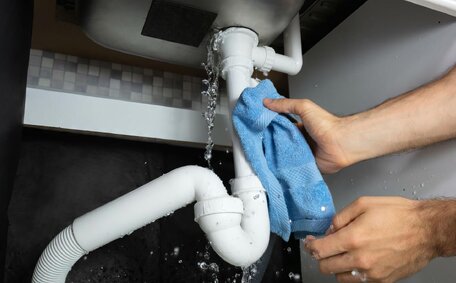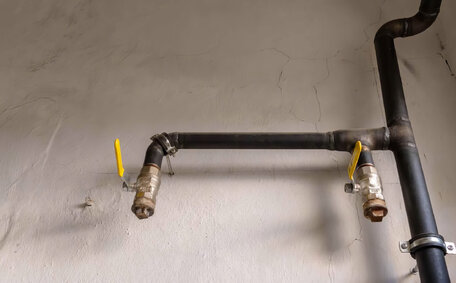Understanding Natural Gas: What It Is and How It’s Used
Natural gas, formed underground from ancient biological matter, is a fossil fuel that burns more cleanly than other hydrocarbon sources. It is made up primarily of methane and is considered one of the cleanest burning fossil fuels. Natural gas is widely used in domestic contexts, particularly for cooking and heating in homes and businesses.
- Heating - Many heaters, hot water systems, and fireplaces utilise liquefied petroleum gas (LPG).
- Cooking - Those who use natural gas can rely on gas stoves and ovens, commonly utilised by those who do gas cooking for culinary purposes.
- Transport - Select vehicles like buses and garbage trucks use compressed natural gas as an eco-friendly fuel alternative.
Raw natural gas is mostly odourless, so the substance mercaptan is added before distribution, emanating a 'rotten egg’ smell for detectability. Natural gas is lighter than air; in contrast, substances like propane are heavier than air and may accumulate at ground level when leaks occur.
Identifying Gas Leaks
Rapidly detecting natural gas leaks is crucial for safe usage, and mercaptan addition eases detection with its distinctive rotten egg odour. Other signs indicating a potential gas leak comprise:
- A hissing or whistling sound emanating from a gas appliance or pipes
- Dirt blowing from a hole or crack in the ground
- Bubbling water puddles over or near gas lines
- Flames coming from the ground or burning off gas around appliances
- Unusual odours in or around your house
Gas detectors are essential tools in homes with natural gas, providing an additional method to identify leaks and prevent health risks. Detectors sound an alert when they sense the symptoms of natural gas exposure, such as elevated levels of carbon monoxide, suggesting a possibility of gas poisoning. Employing operational detectors, integral to the judicious use of natural resources, minimises health risks associated with gas leaks.
Air pollution includes methane from natural gas leaks, contributing around 3% to U.S. greenhouse gas emissions.
Quick identification and repair of leaks reduce pollution and are vital for public health, aligning with environmental and industry standards.
What to Do if You Suspect a Gas Leak
If a natural gas leak is suspected at your home or business, turning off the main utilities quickly is crucial for safety.
- Immediately evacuate and, if it is safe, shut off the gas supply, being cautious to steer clear of any electrical devices. Sparks from switches could ignite leaking gas.
- Avoid using lighters, matches or any open flames which could also ignite the gas.
- Avoid attempting repairs or investigating leaks on your own; these tasks require professional qualifications and precautionary measures like shutting off the gas valve. The dangers natural gas leaks present are significant for health and exclusively warrant attention from licenced experts.
- Go to a safe distance away from the leak - preferably outdoors - then contact your utility provider or call 000 for emergency assistance.
- Always 'dial before you dig’ to ensure safe excavation; for leak reports and detector alerts, contact Eastwood Plumbing at 1300 349 338 for professional assistance. Our specialists will pinpoint and secure your leak source, affirming the zone is energy safe once again for use, whilst pinpointing any requisite repairs.
DIY attempts on gas systems are unsafe, posing risks like leaks, explosions and grave health issues, highlighting the need for professional handling. As specialists in guaranteeing measures that ensure your safety with gas supply adhering to safety standards, Eastwood Plumbing will adeptly manage leaks, safeguarding both you and your property.
How to Operate Gas Appliances Safely
Using natural gas safely in appliances such as stoves, heaters and hot water systems is imperative for any home or business. Heed these safety tips for proper operation:
- Assure sufficient air circulation by employing methods like range hoods, exhaust fans, and opening doors and windows to usher in fresh air when utilising gas appliances, which should be installed by a licensed gas professional.
- Carefully adhere to manufacturer guidelines for igniting your pilot light and regulating the gas flame. A blue flame indicates that the gas burned is combusting efficiently.
- Watch our video for indications of malfunctioning gas appliances, such as sooty deposits and unstable pilot lights.
- Regular servicing and safety checks every 12 months by qualified technicians are critical to keeping your gas appliances functioning correctly.
- Position carbon monoxide alarms close to sleep zones and throughout your premises, ensuring you periodically check your device’s battery status.
- Residents should be proficient in identifying leaks, understanding gas meter readings, and know how to switch off the gas supply quickly.
Adhering to best practices for gas appliances not only promotes cleaner combustion but also enhances indoor air quality and elevates safety for those who do use gas systems.
Importance of Regular Maintenance
Regular inspections of your natural gas system are vital for ongoing safety, affirm experts including PSE Healthy Energy.
Under Australian gas regulations, servicing of natural gas in your appliances and pipework must be carried out once a year by a licensed gasfitter. This includes hot water systems, stoves, heaters and any other equipment running on natural gas in your home or business.
A certified gas fitter conducting regular maintenance can prevent gas leaks and hazards, which also optimises appliance efficiency and longevity. Technicians will thoroughly inspect components for wear or damage, ensure burners are functioning correctly, check for corrosion or blockages, and confirm gas is burning cleanly and doesn’t leak your energy.
Eastwood Plumbing’s crew of accomplished gas fitters offers extensive yearly maintenance and any needed rectifications on natural gas infrastructures. Investing in regular upkeep avoids bigger issues in future and gives you peace of mind that your gas supply is running safely.
When to Call a Professional
If you notice a gas odour, hear hissing, see signs of leaks or struggle with pilot lights, contact Eastwood Plumbing for expertise in addressing these issues. Our experienced technicians are available 24/7 to respond promptly to any gas faults.
Annual checks are recommended to ensure your natural gas system and appliances operate safely and efficiently. Our licenced professionals will conduct a thorough inspection, tune-up, and repairs if needed.
Regular upkeep reduces the likelihood of future issues and confirms compliance with stringent safety standards. Choose your preferred method of contact and get in touch with Eastwood Plumbing on 1300 349 338 or at jobs@eastwoodplumbingservices.com.au to schedule your service.
Dispelling Myths About Natural Gas Safety
When managed properly, natural gas is acknowledged as a safe energy source. Nonetheless, certain myths prevail that might unfairly raise concerns about what do natural gas properties imply.
Myth: The odour added to natural gas is hazardous. Fact: The odour is for safety, helping to detect leaks early and prevent dangerous situations.
Myth: Natural gas leads to more air pollution than other fossil fuels. Fact: Completely combusted natural gas produces fewer pollutants than gasoline or coal.
Myth: Gas appliances like stoves are prone to explosions. Fact: Modern appliances havemultiple safety shut-off valves and mechanisms. When used correctly and well-maintained, gas appliances are very safe.
Myth: People can fix leaks themselves using soap solutions. Fact: Gas system repairs should only be handled by professionals to prevent further leaks or explosions. Only licenced professionals should handle any suspected gas leaks or appliance issues.
Find out more about the realities surrounding natural gas safety, empowering homeowners to utilise this efficient, low emission and safe form of energy correctly. Partnering with qualified specialists like Eastwood Plumbing provides that necessary expertise when questions or concerns occur.
Evaluating the Pros and Cons of Natural Gas
Natural gas offers many benefits that make it a popular fuel choice for many homes and businesses:
- It’s very energy efficient - over 90% of natural gas consumed gets converted to usable heat.
- It produces not only heat but also fewer greenhouse gas emissions compared to other fuels when combusted.
- Modern gas appliances suitable for smart home systems, including furnaces and heaters, are designed for safety and reliability.
- Natural gas prices have remained relatively low and stable compared to other energy sources, positioning it as an affordable clean energy option.
Despite these advantages, certain drawbacks of natural gas should be considered:
- Leaks of unburned natural gas, such as methane, contribute to climate change and air pollution.
- Gas leaks and carbon monoxide poisoning pose safety hazards if not properly addressed.
- Distribution systems and appliances must be carefully maintained to prevent leaks.
- Though cleaner, natural gas burning does result in nitrogen dioxide and carbon dioxide emissions.
Overall, the advantages can outweigh the disadvantages as long as proper precautions are taken, gas systems are well-maintained, and leaks are prevented or promptly fixed. Partnering with reputable specialists like Eastwood Plumbing helps minimise risks while benefiting from this efficient fuel.






